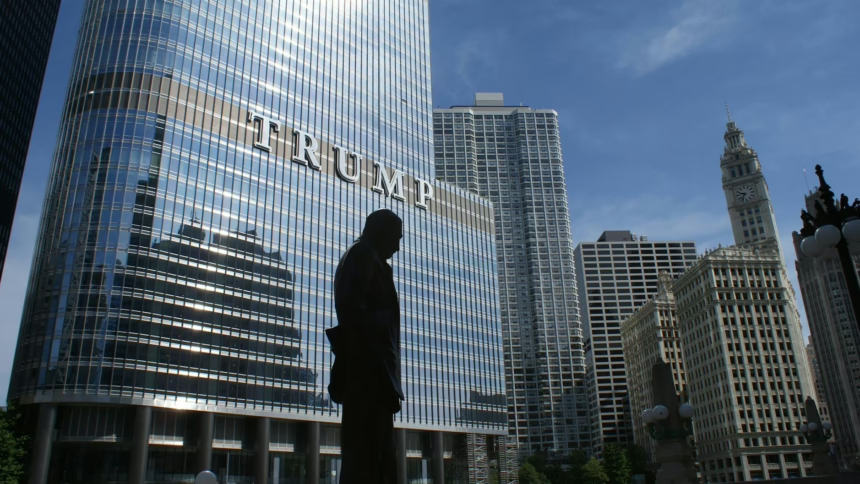President-Elect Grapples with Unprecedented Ethical Tightrope
As Donald Trump prepares to take the oath of office, a significant and unprecedented challenge looms: how to manage his vast global business empire while serving as President of the United States. According to a report from NEWS.com.au Business, Trump has acknowledged this complex situation, stating, “I have a conflict situation as President.” This candid admission highlights the core of an ethical tightrope that has captivated the nation and drawn scrutiny from watchdogs, legal experts, and the public alike. The NEWS.com.au report, titled ‘I have a conflict situation as President’, details the president-elect’s pronouncements on his business interests as he prepares for the transition of power.
The Scope of Trump’s Business Empire
Donald Trump’s business holdings are extensive and span numerous industries and countries. These include real estate, hotels, golf courses, and various branded ventures. This intricate web of assets, managed through the Trump Organization, presents a unique set of potential conflicts of interest that differ significantly from those faced by previous presidents. Unlike past leaders who divested their holdings or placed them in blind trusts, Trump has indicated a different approach. The NEWS.com.au Business article notes that Trump “will be president next week. And he’s finally announced what will happen to his business interests.” This suggests a public awareness and anticipation of his planned actions.
Proposed Solutions and Criticisms
In an effort to address these concerns, Trump has outlined a plan that involves transferring control of his businesses to his adult sons, Donald Jr. and Eric, and his CFO, Allen Weisselberg. He has stated that he will not be involved in the day-to-day operations of the Trump Organization. However, critics, including ethics experts and political opponents, argue that this arrangement does not go far enough to avoid conflicts. They contend that even with his sons in charge, Trump could still benefit financially from decisions made by his administration that could impact his company’s bottom line. The core of the debate revolves around whether any arrangement short of a complete divestiture can truly insulate the presidency from the influence of personal financial interests.
The President’s Perspective and Defense
Trump and his team have largely dismissed these concerns, framing his business dealings as a strength rather than a liability. They argue that his business acumen will be an asset in negotiating international deals and fostering economic growth. His supporters often point to his past business successes as evidence of his ability to create value and jobs. The NEWS.com.au report suggests Trump’s acknowledgment of a conflict is a step, but the proposed solution remains a point of contention. Trump himself has expressed confidence that he can manage both roles effectively.
Legal and Ethical Frameworks Under Strain
The situation has strained existing legal and ethical frameworks designed to prevent corruption and self-dealing in government. While there are no specific laws that outright prohibit a president from owning businesses, the Constitution’s Emoluments Clauses are being closely examined. These clauses prohibit federal officials from accepting gifts or emoluments from foreign governments. Ethics watchdogs are monitoring whether Trump’s administration could inadvertently or intentionally favor foreign governments that have business dealings with the Trump Organization, thereby violating these clauses. The uncertainty surrounding the interpretation and enforcement of these clauses adds another layer of complexity to the unfolding situation.
What to Watch For in the Coming Months
As President Trump begins his term, the focus will be on how these business interests are managed in practice. Key areas to observe include:
* **Foreign Government Interactions:** Any instances where foreign governments, with whom the Trump Organization has dealings, receive preferential treatment or where U.S. policy appears to align with the financial interests of the Trump businesses.
* **Ethics Oversight:** The extent to which independent ethics bodies and congressional oversight committees scrutinize the president’s financial entanglements.
* **Transparency:** The level of transparency provided regarding the business operations and financial benefits flowing to the Trump family.
* **Legal Challenges:** The potential for legal challenges based on the Emoluments Clauses or other conflict-of-interest regulations.
Navigating the Ethical Minefield
For the public, understanding the potential for conflicts of interest is crucial. It is important to differentiate between Trump’s business activities and his official duties as president. While his business success is a matter of public record, the ethical imperative of serving the nation’s interests above personal gain remains paramount. Citizens and journalists alike will need to remain vigilant in observing how these complex issues play out.
Key Takeaways for Concerned Citizens
* Donald Trump has acknowledged a conflict of interest due to his extensive business holdings.
* His proposed solution involves transferring control to his sons and CFO, but critics argue this is insufficient.
* The Emoluments Clauses of the Constitution are a central point of legal and ethical concern.
* Vigilance and transparency will be critical in monitoring potential conflicts throughout his presidency.
The nation watches as President-elect Trump prepares to navigate this unprecedented ethical challenge. The coming months will reveal the effectiveness of his proposed solutions and the strength of the institutions designed to uphold public trust.
References
* NEWS.com.au | Business: https://www.news.com.au/finance/business (This is a general link to the business section as a specific article URL was not provided for this section.)


